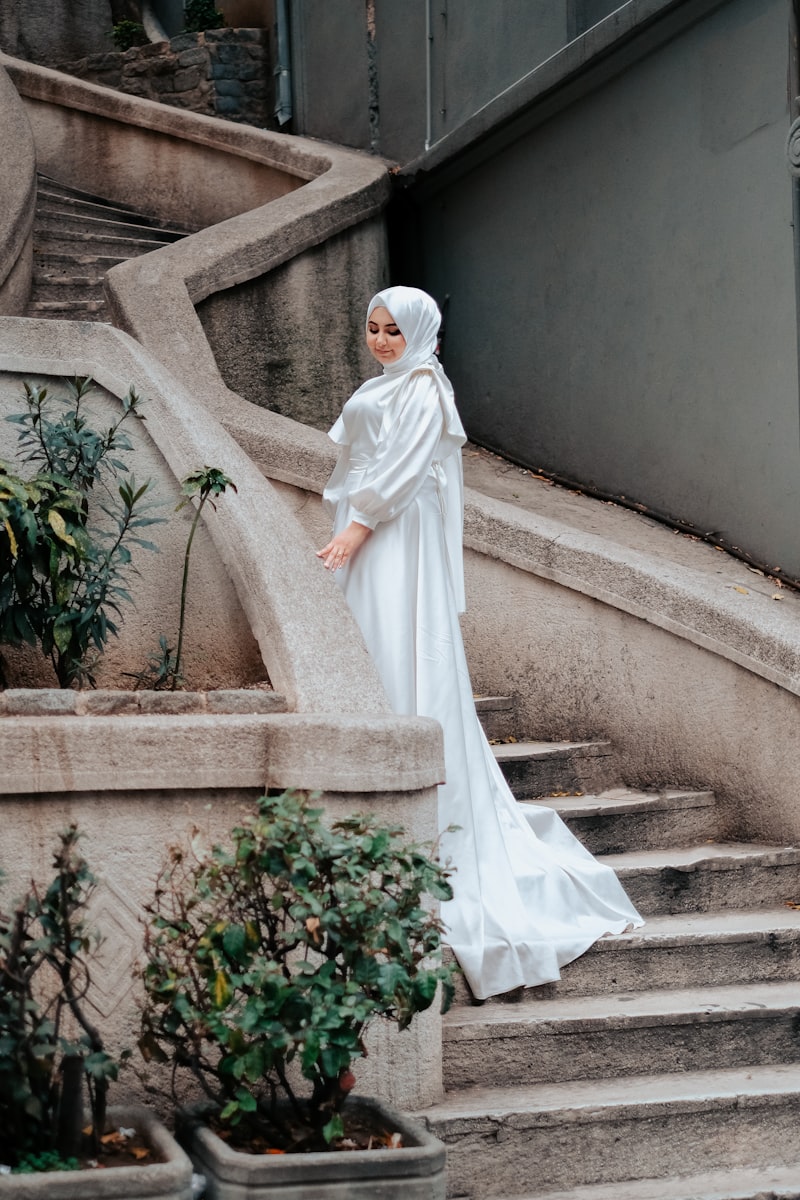The Psychology of Wedding Dress Choice: Unveiling the Secrets Behind Your Special Day
The Psychology of Wedding Dress Choice: Unveiling the Secrets Behind Your Special Day
Understanding Why Wedding Dress Choice Matters
Choosing a wedding dress is one of the most significant moments in a bride's journey to the altar. It is not merely a decision based on aesthetics; it is deeply rooted in psychology. This article explores the psychology of wedding dress choice, examining the factors that influence this important decision, the emotional significance behind it, and the cultural context that shapes our choices.
The Emotional Impact of Wedding Dresses
For many women, the wedding dress is much more than just a garment. It symbolizes a momentous life change and represents personal identity, romantic ideals, and cultural traditions. The emotional investment in the dress can create a complex psychological landscape that guides brides in their selection process.
Identity and Self-Expression
A wedding dress is often a reflection of the bride’s personality. This expression of identity can evoke feelings of empowerment and confidence. Brides may gravitate towards a particular style or design that resonates with their individuality, allowing them to express their unique narrative on their wedding day. Consider how different styles may align with various personality traits:
| Wedding Dress Style | Personality Type |
| A-line | Traditional, Romantic |
| Mermaid | Confident, Bold |
| Bohemian | Free-spirited, Creative |
| Princess | Dreamy, Idealistic |
Cultural Influences
In various cultures, wedding dresses carry specific symbolism. For instance, in Western cultures, white dresses signify purity and new beginnings, while in many Asian cultures, red dresses symbolize luck and prosperity. Brides often feel pressure to conform to these cultural expectations, which further complicates the choice-making process. Observing the influence of culture, one can appreciate the depth of the psychology of wedding dress choice. It’s more than just a dress; it’s about respecting traditions and fulfilling societal expectations.

The Role of Marketing and Media
Today's wedding dress market is heavily influenced by marketing and media. From bridal magazines to social media platforms, the portrayal of "the perfect dress" can shape brides' expectations and desires. The idealization of wedding dresses in popular culture can lead to cognitive biases, causing brides to overlook what genuinely resonates with them personally.
Influencer Culture and Peer Pressure
In a world of social media, the pressure to choose a dress that garners likes and comments can be overwhelming. Influencers and celebrities often set trends that create a narrow definition of beauty and style for brides to emulate. This preoccupation with external validation can detract from a bride's innate sense of style and the personal journey that should accompany such a significant purchase.
The Decision-Making Process
Deciding on a wedding dress involves several psychological stages. Understanding this process can provide insight into the emotional and mental journey brides go through.
Clarifying Preferences
The initial stage involves recognizing personal preferences. Brides often compile inspiration boards, sift through magazines, or browse online platforms to identify styles they are drawn to. This stage is crucial in shaping their vision.
Facing Reality
As brides narrow down their choices, they must confront practicalities such as budget constraints, availability, and sizing. Often, this reality can lead to frustration if the dream dress is outside a feasible budget, leading to a tug-of-war between desire and practicality.
Overcoming Anxiety
It is commonplace for brides to experience anxiety throughout their decision-making process. The weight of societal expectations and the pressure to look 'perfect' on the big day can result in stress. Techniques such as mindfulness and support from friends and family can play a vital role in alleviating this anxiety. Engaging in open conversations about feelings and expectations can also aid in grounding the bride in her personal journey.
Conclusion: Embracing the Journey
Choosing a wedding dress is a multifaceted psychological journey that encompasses personal identity, cultural expectations, and emotional fulfillment. It's essential for brides to focus on what makes them feel beautiful and true to themselves, rather than getting lost in trends or societal pressures. As you navigate through the process, remember to take the time to reflect on what the dress represents to you personally. Here are some suggestions:
- Know Your Style: Take the time to understand your fashion preferences and what makes you feel like yourself.
- Budget Mindfully: Set a clear budget beforehand to avoid stress later on.
- Embrace Support: Lean on friends and family for advice and encouragement. Their support can make a big difference.
- Self-Reflect: Regularly check in with yourself throughout the process to ensure you are making choices that are in line with your values and comfort.
- Enjoy the Process: Try to relish each moment, as the journey to find your wedding dress is part of the beautiful memory of your wedding experience.
Ultimately, the psychology behind wedding dress choice is layered and profound. By understanding the emotional and societal influences at play, brides can navigate their wedding dress journey with confidence and authenticity, ensuring that they feel truly beautiful on their special day.
